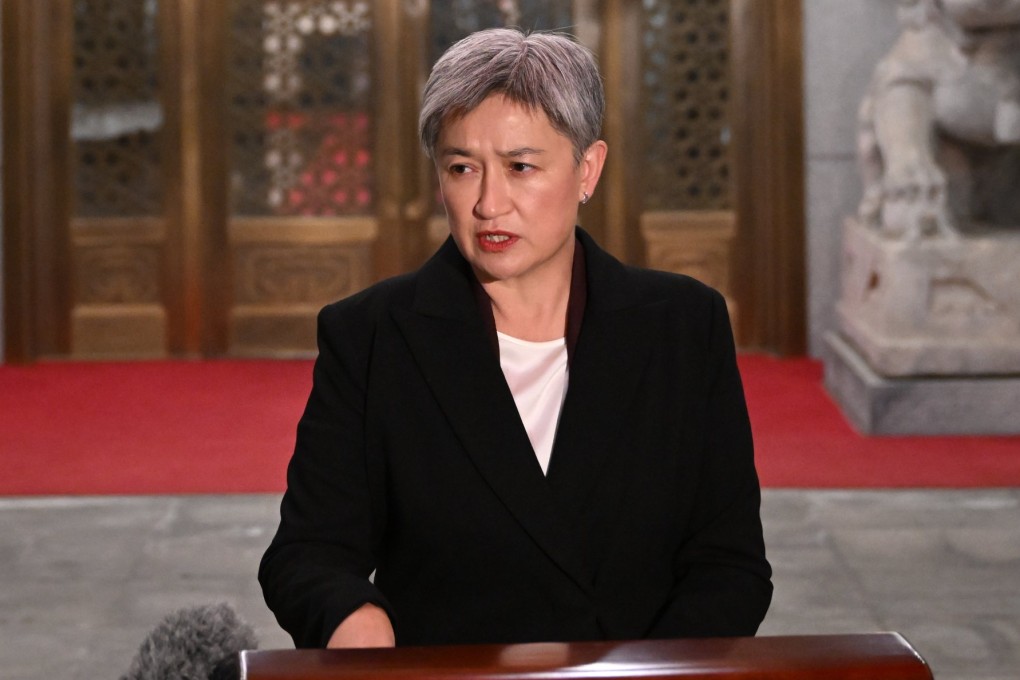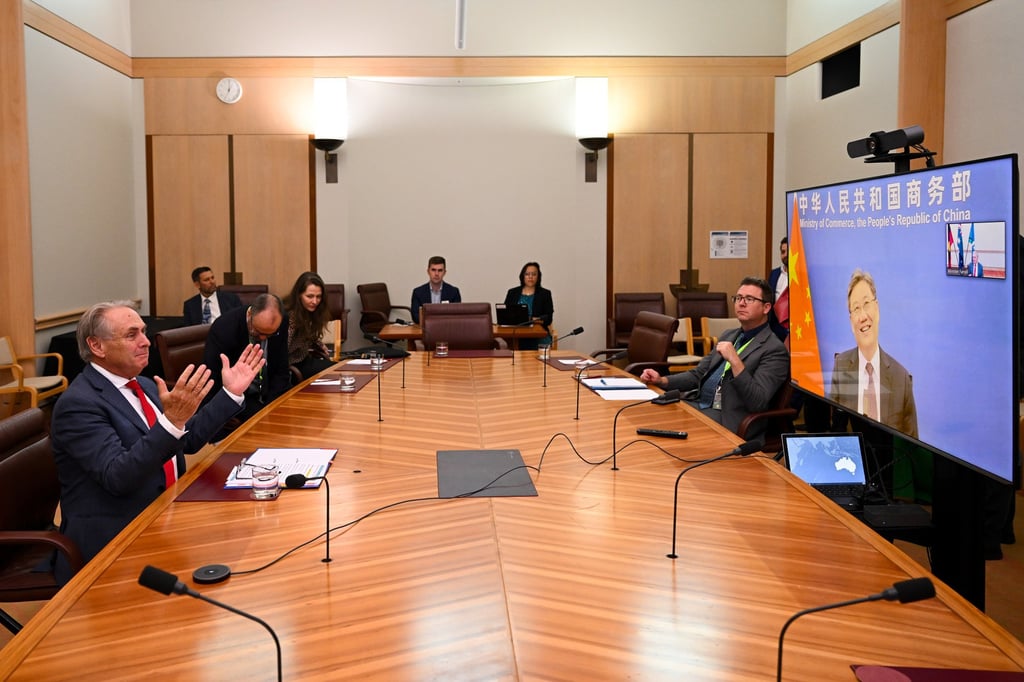Australia doesn’t need to use sanctions to act against China rights concerns: Penny Wong
- The foreign minister was responding to suggestions by ex-premier Scott Morrison that the country had taken an ‘accommodating’ view towards Beijing’s rights record
- Wong added it is in both China and Australia’s interests to remove any impediments to trade, as a nearly 3-year bilateral stand-off between both sides eases

Australia’s Foreign Minister Penny Wong has cautioned against “taking advice on foreign policy” from the country’s former prime minister Scott Morrison, who has been calling for Magnitsky-style human rights sanctions against China.
Ahead of a speech on Friday that Morrison gave in Tokyo, his notes were published by Australian media, in which he wrote that the West had taken an “accommodating” view to Beijing’s human rights situation.
Wong, who was speaking to reporters after a ministerial forum with Papua New Guinea, said human rights were important to Australia but there were various ways to express its concerns.
“I’m not sure how much advice it would be sensible to take from Mr Morrison on foreign policy but … I outlined at length our position on sanctions as not the only, but one of the ways, in which Australia will express and assert its values,” she said.
On trade, Wong reaffirmed that it was in both China and Australia’s interests to remove any impediments, in another sign the nearly three-year bilateral stand-off between Beijing and Canberra was on the mend.
